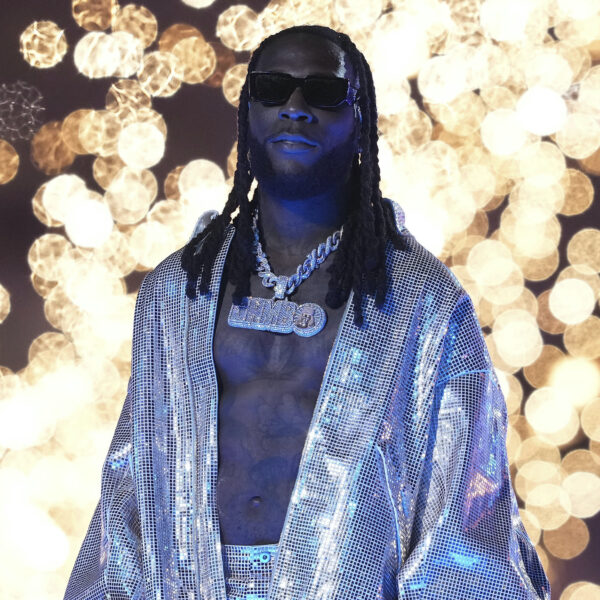
Photo credit: AP
Music
African Music has Arrived on the Global Stage. What’s Next?

Photo credit: AP
As artists around the continent hit the mainstream, Africa is injecting new life into the global music scene
By Wale Oloworekende
August 2023
“This is for Burna Boy! Burna Boy is among the young artists from Africa that is changing the way our continent is perceived,” Angelique Kidjo proudly declared while accepting the 2020 Grammy for Best World Music for her album Celia. Giving Burna Boy, another nominee in the same category, due attention is nothing new for the decorated musician. In 2016, after triumphing in the same category, Angelique foretold Africa’s coming musical explosion.
In the three years since that moment on stage at the Staples Center — widely seen as a passing of the torch between Africa’s classical music epoch and its modern iteration led by stars like Wizkid, Burna Boy, and Tems —African music has come leaps and bounds globally. Music from the continent in all its variations from the west African-led afrobeats to South Africa’s house derivative amapiano led by stars like DJ Maphorisa and Tyler ICU and east Africa’s bongo flava have gone from niche sounds among eclectic Western tastemakers to a core part of global pop’s expansionist post-2010 framework.
A key part of African music’s success on the global scene has been built on the individual successes of a new generation of music stars. Just one year after losing out on a Grammy gong for his African Giant album, Burna Boy snagged one for Twice As Tall while Wizkid’s titanic album, Made In Lagos, remains a touchstone for a cross-continental black experience rooted in experimentation and joyful expression. Tems, arguably the biggest breakout star from Made In Lagos, has become the toast of Hollywood, guesting on songs by Beyoncé, Drake, and Future. At the 65th edition of the Grammy Awards held in February, Tems won in the Best Melodic Rap Category for her contribution to Future’s chart-topping hit, “WAIT FOR U.”
All these successes have led to more propulsive motion for African music in 2023. Last month, after years of discussions and criticism about the labelling and handling of African music in the American market, the Grammys announced the creation of a Best African Music Performance Category starting in 2024 that “recognizes recordings that utilize unique local expressions from across the African continent.” This category will encompass music from a variety of genres that cuts across the sonic fabric of Africa with selections from afrobeat, afropop, asakaa, kwassa, mapouka, and South African house among others to be considered.
Kenyan music and PR executive, Camille Storm believes that the creation of the standalone category is a step in the right direction of recognizing the incredible contributions of African music to the global music ecosystem. “I think this is a positive thing because it will highlight more genres of African music and more of the excellent and rich artistry that is coming out of many different parts of Africa,” she tells STATEMENT.
Nigerian music journalist and essayist, Dennis Ade-Peter, recognizes the utility of “recognizing the scene on ‘music’s biggest night,’” but is less enthused about the politics of recognition and which African music genres receive the most acknowledgement. For years, critics, journalists, and observers of African music have criticised the conflation of African music with afrobeats–arguably the biggest sonic form from Africa–saying that it represents a one-dimensional outlook of the continent. With the introduction of the Best African Music Performance Category, many fear that afrobeats would continue to be the default representative form of African music. “The music coming from the continent is so diverse that we can only know the true ramifications of the category when we start seeing nominations and the resulting awards,” Ade-Peter concedes.
Regardless of perceived limiting factors surrounding language, cadence, and enunciation, African music continues to connect with a global audience. This year alone, afrobeats was celebrated in a themed showcase at the NBA All-Star Game Halftime Show in February that displayed the increasing impact of African music on American pop culture. In a remarkable showcase of African Music’s globalisation, Rema–one of the performers at the NBA All-Star Game Halftime Show–had his hit single, “Calm Down,” go to number one in India for multiple weeks leading to a much-heralded tour of the country.
Presently, the Selena Gomez-assisted remix of “Calm Down” is charting at number three on the Billboard Hot 100 in continuation of a 43-week stint on the chart that has cemented Rema’s position as one of the most recognisable African acts in the world. He’s not the only one to enjoy stateside success with a sound that harkens to the rhythmic signature of African music. In December 2022, a young down-on-luck Cameroonian-American singer, Libianca, released a single inspired by her struggles with cyclothymia. That single titled “People,” a mix of soul and afropop’s peculiar percussive pattern, has since become one of the most popular songs in the world. It has since been streamed over 340 million times on Spotify. Late last month, Libianca beat another African breakout star, Asake, to the much-coveted BET Best New International Act award, completing a remarkable rise to fame.
Ade-Peter believes that these achievements speak to the permanence of African music on the global stage. “It means that the success is sustainable,” he says. “There’s always the fear that the momentum behind the urban African music crossover run can stall due to lack of interest, but these feats bolster confidence, that there will always be greatness to be exhibited by the bigger superstars and the newer artists.” Storm agrees, noting that this is just a glimpse of what is to come. “As an executive, it is an exciting time to not only watch these milestones occur, but be part of some of them, the future looks incredibly bright.”
While the future might indeed look exceedingly bright, the journey of African music’s current iteration to being embraced by the West has been years in the making. The sustained regional success of music scenes in Nigeria, Ivory Coast and Ghana at the turn of the 2000s set the pace for the African music global outbreak. As migrants moved out of those countries to the West, they often took cassettes and CDs of music from their home countries and regions with them to maintain a connection to the motherland and foster new communities in their adoptive countries. This gave rise to the famous hall parties in the UK and United States that served as a music discovery point for plenty of second-generation immigrants, tastemakers, and crate-diggers looking to find what was hot in African music.
For all the successes since then, perhaps the biggest sign that African music has arrived is the belated institutional embrace of music from the continent with digital service providers like Audiomack, Apple Music, and Spotify leading the way. In June, Spotify launched a microsite called Afrobeats: Journey of a Billion Streams with the aim of tracking the key moments in the rise and continued growth of the widely-popular African music genre. The archival project, led by African writers, critics, and historians, who lived through Afobeats’ rise is an integral first step to properly contextualising an ever-evolving story that includes multiple players, cities, and genres operating with the goal of bringing African music to a global audience. “The positive is that there’s unabashed pride about the quality of music being made by our artists and that is playing a role in keeping people everywhere engaged,” Ade-Peter says.
The pride that African music is inspiring is having an outsized impact on the continent itself and its viability as a music destination. Last year, Pulitzer award-winning rapper, Kendrick Lamar, released his long-awaited album, Mr Morale & The Big Steppers, while on a visit to Ghana. This year, another popular American rapper, Travis Scott, was spotted shooting a video in the ancient city of Kano in Northern Nigeria and has already announced plans to launch his new album, Utopia, with a live show in Egypt. African music also continues to serve as inspiration for some of the biggest pop stars in the world as well: in May, Puerto Rican singer, Ozuna, released Afro, a seven-song dispatch that is an immersion into the pulse of popular African music.
With African music delighting people the world over, Storm wants to see a focus on improving the music process on the continent. “We need to leverage these gains and efforts should be focused on strengthening infrastructure locally like creating better recording studios and concert venues. Artist development and education are also very important especially around streaming, music distribution and publishing, so that artists and industry professionals are aware of how to take advantage of the opportunities in the market and make the best out of it,” she opines. “By implementing these strategies, we can hope that the gains made in streaming and global recognition of African music can translate into a more organized and flourishing local music ecosystem.”

